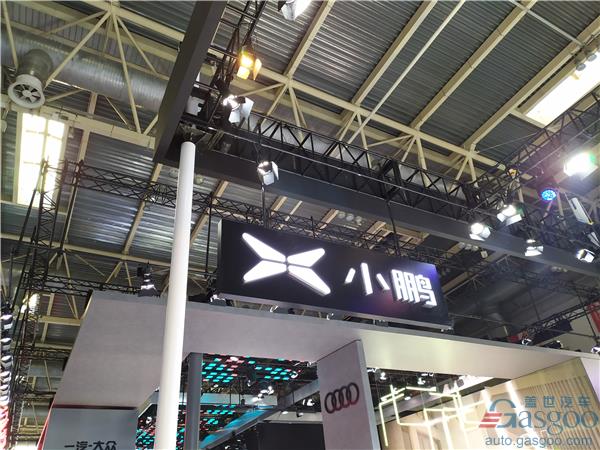Software revenue included in XPeng’s quarterly vehicle income for the first time
Shanghai (ZXZC)- In the first quarter of 2021 (Q1 2021), XPeng Inc. (XPeng) gained 2.951 billion yuan ($450.4 million) in revenues, posting an impressive surge of 616.1% from the year-ago period and a growth of 3.5% from the previous quarter, the Chinese EV startup announced on May 13.
First-quarter revenues from vehicles sales reached 2.81 billion yuan ($428.9 million), representing a hike of 655.2% from the previous year and an increase of 2.7% from the fourth quarter of 2020 (Q4 2020).

According to Dennis Lu, XPeng's Vice President of Finance, the year-over-year growth was mainly due to the delivery of the P7, which began at the end of June last year. The quarter-over-quarter rise was primarily thanks to the revenue recognition of XPILOT 3.0 software in Q1 2021 since the functionality was fully delivered to software purchasers, despite the lower government subsidy for new energy vehicles starting from January this year.
XPeng's gross margin stood at 11.2% for Q1 2021, versus negative 4.8% over the prior-year period and 7.4% for Q4 2020. Meanwhile, the Q1 2021 vehicle margin was 10.1%, compared to negative 5.3% for the same period in 2020 and 6.8% for the previous quarter.

XPeng NGP (Navigation Guided Pilot) function; photo credit: XPeng
Dennis Lu said the improvement in vehicle margin was mainly credited to the material cost reduction and also the revenue recognition of the XPILOT software sales.
“For the first time, the revenue from our XPILOT software was recognized in top line and reflected in gross margin, marking a significant milestone in Chinese EV industry,” he said.
To be specific, in Q1 2021, total revenue from the XPILOT 3.0 software was around 80 million yuan ($12.41 million). Among that, about 50 million yuan ($7.756 million) was from those contracts made last year, and the other 30 million yuan ($4.654 million) was from the software XPeng sold this year. In general, the software contributed about 2.5 percentage points to the margin.
The sound revenue growth was certainly fueled by strong delivery growth. In spite of traditionally slower season demand and challenges of chip shortage, XPeng's vehicle deliveries reached 13,340 units in Q1 2021, soaring 487.4% over a year earlier and inching up 2.9% over the previous quarter.
At the earnings call after announcing the quarterly financial results, XPeng admitted the challenges flowing from the industry-wide chip shortage. “Without the constraints, the delivery number will be higher than what we have given out,” said Brian Gu, XPeng’s Vice Chairman and President
“I think the upcoming Q2 will be the most challenging time for smart EV manufacturers”, said He Xiaopeng, Co-founder, Chairman and CEO of XPeng. He revealed that XPeng has adopted some measures to prevent itself from getting into the quandary. For instance, it communicated directly with chipset suppliers to make sure that it has enough inventories and orders put in place to support future development and production. Moreover, because XPeng has many closed-loop automated R&D technologies that allow flexible adaption to different chipsets in vehicle production, the company is able to seek new chipset suppliers, so as to become really adaptive to market changes.

XPeng P5; photo credit: XPeng
On April 14, XPeng launched its third production model, the P5, which is purportedly the world's first production model equipped with LiDAR. The order volume of the P5s surpassed 10,000 units only 53 hours after the presale kicked off at the Auto Shanghai 2021. The startup plans to start delivering the P5s in the fourth quarter of this year, said He Xiaopeng.
Currently, the LiDAR devices using on the P5s are from Livox, a LiDAR technology developer incubated by Chinese drone maker DJI, while XPeng is also open to other options. “By 2022 to 2023, the new models to be launched may adopt different brands that produce LiDARs,” added He Xiaopeng.

